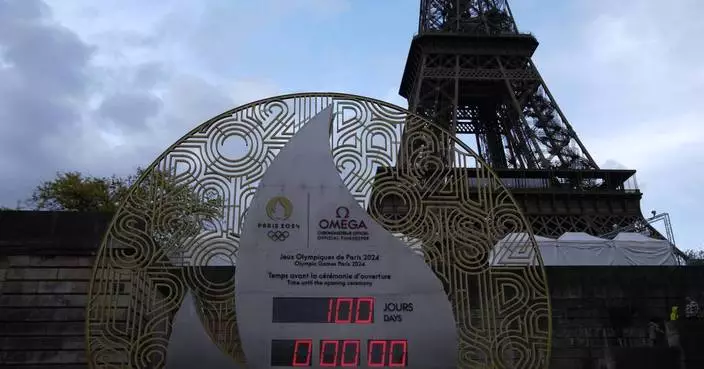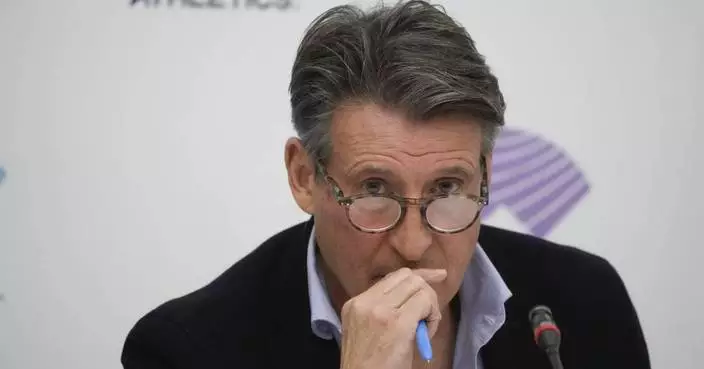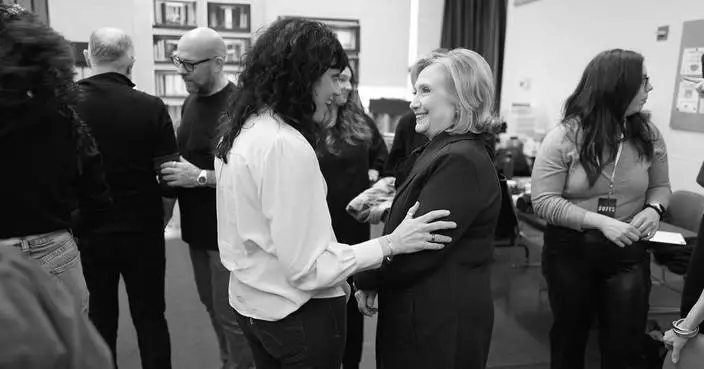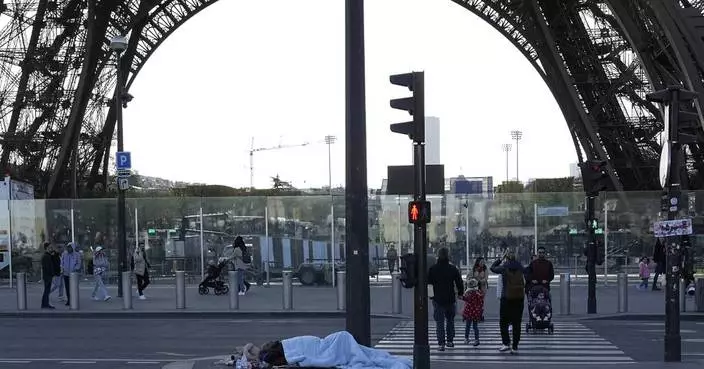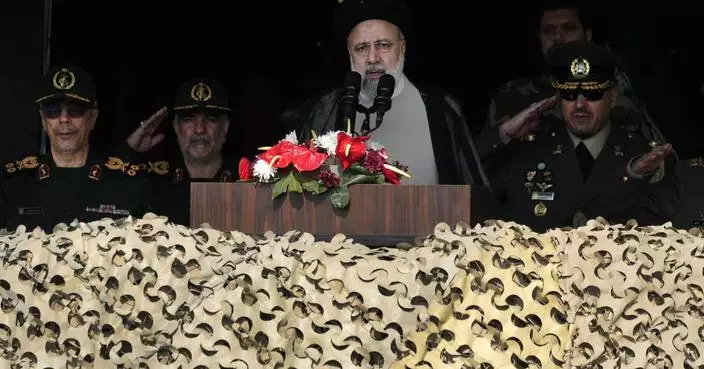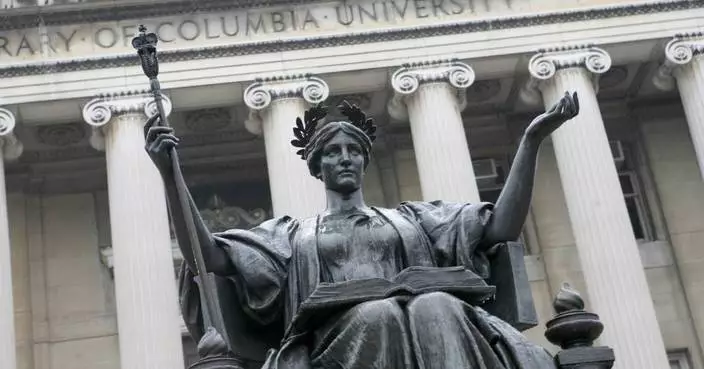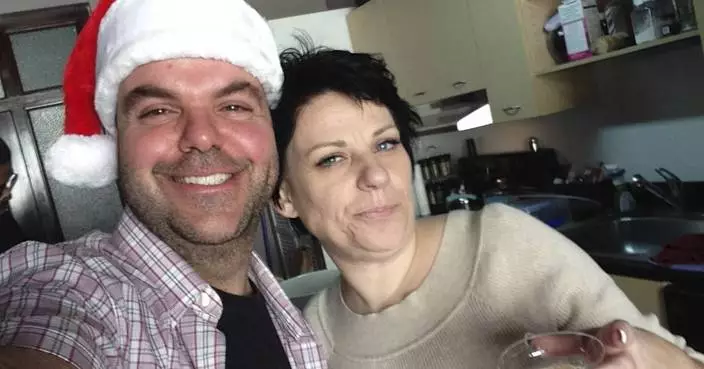Vitaly Mutko bowed to mounting pressure and stepped down as chairman of the 2018 World Cup organizing committee on Wednesday after being dogged by investigations that highlighted his role in a state-backed doping program.
Alexei Sorokin, the chief executive of the committee, will also assume the chairmanship vacated by Mutko. Sorokin also took Mutko's spot on the FIFA Council this year after he was blocked from seeking re-election due to his promotion to Russian deputy prime minister.
The high-ranking government position ensures Mutko will still retain involvement in logistical planning for the World Cup in June and July.
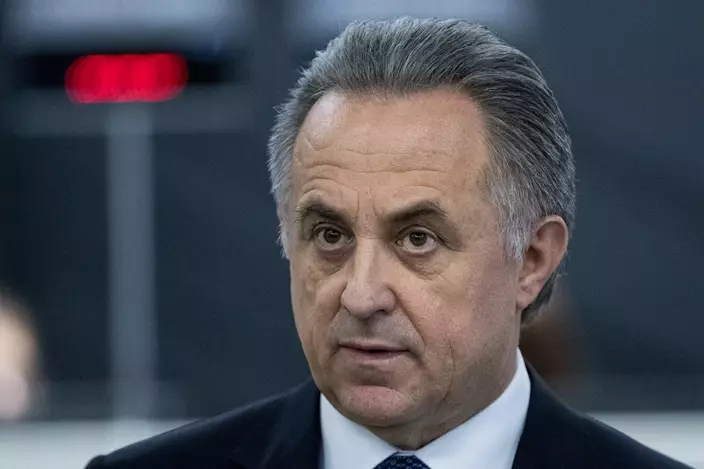
FILE In this file photo taken on Thursday, Dec. 7, 2017, Vitaly Mutko, Russian Federation Deputy Prime Minister & Russia 2018 WCup Local Organising Committee Chairman, speaks with press during the opening of the WCup Fan ID distribution center in Moscow, Russia. (AP Photo/Pavel Golovkin, File)
"Mutko will continue to oversee the preparations of the regions as well as coordinate the construction of the necessary infrastructure," the organizing committee said in a statement that expressed "great regret" over his departure.
Mutko's resignation comes two days after he said he would temporarily step down as president of the Russian Football Union while fighting a lifetime ban from the Olympics.
Investigations by the World Anti-Doping Agency and the International Olympic Committee alleged Mutko was involved in a state-sponsored doping program during the 2014 Sochi Olympics. Mutko, who served as Russia's sports minister during the Winter Olympics, has strongly denied all doping allegations.
The IOC didn't accuse Mutko of being personally involved in doping, but banned him from the Olympics for life, saying he and his ministry bore overall responsibility for "failure to respect" anti-doping rules.
Mutko had been defiant at the World Cup draw in Moscow this month, dismissing calls for him to leave his role as front-man of the tournament.
FIFA, which has faced calls to open disciplinary proceedings against Mutko, did not mention the doping cases in a statement acknowledging the resignation.
"FIFA thanks Mr. Mutko for his invaluable contribution to the preparations for the competition so far," the governing body said. "FIFA will continue to work in close collaboration with the LOC (local organizing committee) under its new leadership as well as with the Russian government, the Russian Football Union and the host cities with the aim to deliver an exceptional event in June and July."
Russia opens the World Cup against Saudi Arabia on June 14 in Moscow where the final will be staged on July 15.
"The change in the leadership ... will not affect the preparation of the 2018 FIFA World Cup," local organizers said.
LONDON (AP) — Olympic organizers unveiled their strategy Friday to use artificial intelligence in sports, joining the global rush to capitalize on the rapidly advancing technology.
The International Olympic Committee outlined its agenda for taking advantage of AI. Officials said it could be used to help identify promising athletes, personalize training methods and make the games fairer by improving judging.
“Today we are making another step to ensure the uniqueness of the Olympic Games and the relevance of sport. To do this, we have to be leaders of change,” IOC President Thomas Bach said at a press event in the velodrome at the Olympic Park in London, which hosted the summer games in 2012.
"We are determined to exploit the vast potential of AI in a responsible way,” Bach said.
The IOC revealed its AI master plan as it gears up to hold the Paris Olympics, which are set to kick off in just under 100 days.
The IOC's AI plans also include using the technology to protect athletes from online harassment and to help broadcasters improve the viewing experience for people watching from home. The IOC earns billions of dollars through the sale of broadcast rights for the games.
Some AI projects will be rolled out at the Paris games and the IOC has set up a working group on the technology to further drive its adoption in sport, Bach said, without being more specific.
The local organizers of the Paris games have sparked controversy with their plans to use artificial intelligence for security, with a video surveillance system that includes AI-powered cameras to flag potential security risks such as abandoned packages or crowd surges. Digital watchdog groups fear that a proposal to legalize smart surveillance systems, even if only temporarily, will infringe on privacy, though the French government insists the systems won't use facial recognition technology.
Asked about the concerns, Bach told reporters it's up to the authorities in the host country, not the IOC, to decide on ”the best tools to apply to secure the games."
“What we have seen from the French government and from the authorities is that the efforts to ensure security in Paris are really, on a very wide scope, very professional. So we have all confidence in the French authorities,” he said.
Skier Lindsey Vonn said she was envious of the AI-powered tools that weren't available when she was starting out.
Vonn said back in the day she took notes by hand in her performance diary on how different skis, boots and the temperature affected her performance. Nowadays, tablets are used to instantly crunch much more data, as well as give a side-by-side video comparison of the best racing line. AI can supercharge those analytical tools, she said.
“It’s not replacing athletes, it’s not replacing coaching. But I think it’s just another tool that can be used in a positive way to perform better,” Vonn said.
The IOC has partnered with Intel to scout out potential athletes in overlooked places. The tech company took its equipment to Senegal, where they visited five villages and analyzed the athletic ability of a thousand children, by measuring how high they could jump and how fast they could react.
Using AI to analyze the results, "we found 40 that are really promising," said Christoph Schell, Intel's chief commercial officer.
The shortlisted kids' results were then run through an algorithm that recommended what sports they'd be good at, he said.
Olympic officials are also aware of AI risks. Bach warned against allowing machines to be the ultimate arbiter of a young athlete's career. Someone who's a “great athlete in wrestling must still have the chance to play tennis and cannot be sorted out” by the algorithms, he said.
AP videojournalist Kwiyeon Ha contributed to this report.

Thomas Bach, IOC President speaks at the International Olympic Committee launch of the Olympic AI Agenda at Lee Valley VeloPark, in London, Friday, April 19, 2024. They will be presenting the envisioned impact that artificial intelligence can deliver for sport, and how the IOC intends to lead on the global implementation of AI within sport. (AP Photo/Kirsty Wigglesworth)





